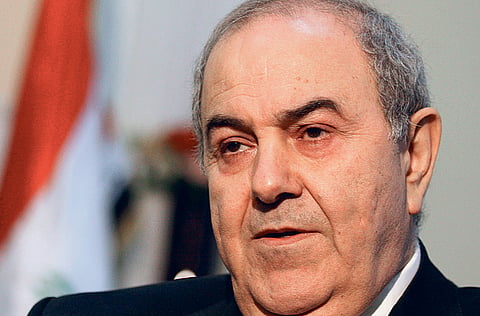Al Sadr holds key to new Iraq government
The state is too fragile to endure a political stalemate between Allawi and Al Maliki

Iraq needs a government as soon as possible, and this has become very hard with the near-draw between the challenger Eyad Allawi's Iraqiya party winning 91 seats just ahead of the incumbent Nouri Al Maliki's State of Law party's 89 seats. They need to find support for reaching a majority of 163, and there is a real danger that talks might drag on for months. But Iraq needs an answer quicker than that.
It is very healthy that even the idea that the government might change is a serious possibility. This is the core of democracy, and forces all Iraqi parties to remember that they have to answer to the people. A dangerous assumption had been growing over the past two years that Al Maliki's improving record on security would win him the next election. It would be a great mistake for any leader to deny the validity of the polls just because he has lost. The way forward is to find a majority, not wreck the result.
The constitution requires the largest party to try and form a government, so it is Allawi's job to seek the support of the Iraqi National Alliance, the third party with 70 seats. But this loose alliance of different parties is dominated by Moqtada Al Sadr, whose Sadrist candidates won 40 seats. Al Sadr has no reason to like either the secular Allawi or Al Maliki who dumped the INA a few months ago in a move which badly backfired.
The Kurdish alliance only won 43 seats so cannot offer either of the two leading parties enough on its own. Therefore Iraq faces a real test of statesmanship for the three politicians who can make the next government. They need whatever help they can get, because Iraq is too fragile to endure a political stalemate.



